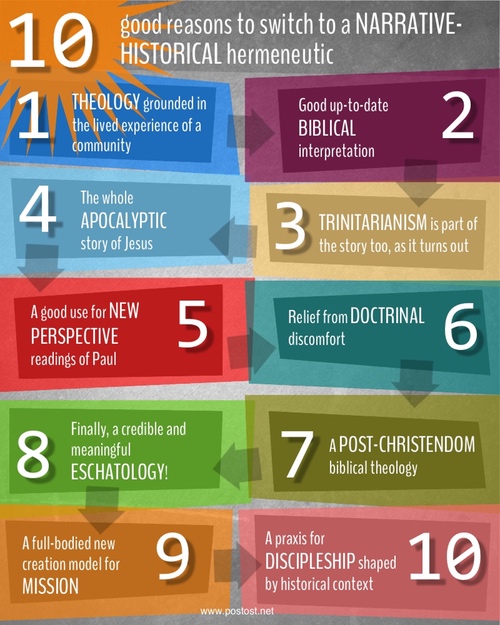 |
| Are they really good reasons? Read on ... |
Browsing the web, I have recently found a blog by the curious name P.OST (P dot OST, ""How to tell the biblical story in a way that makes a difference", @ postost.net).
I don't think I even considered what it was about, in the beginning. Looking back at the list of Comments, I now realize that I had a real "commenting binge" on it, with as many as 100 comments exchanged in little more than 10 days, mostly with the blog author, Andrew Perriman. My first comment was appended to the (rather old) post The message of the Bible in one sentence (8 years old - 2011 - I don't think I even read it) and it goes like this:
God promised to Abram that He “will make him the father of a multitude of nations” (Gen 17), not just one nation; then came Moses, and the Israelites thought that that promise was only for them; then came Jesus and infuriated the Jews because he said to them, “Before Abraham become [father of a multitude of nations I am [the Messiah]”; now we are waiting for God to bring about the original promise to Abraham: the Kingdom of God. (Miguel de Servet 29 January, 2019, @ postost.net)I didn't get any comment in reply.
The same day, I read (this time I did) the (more recent - 29 November, 2018) post In the beginning was the Word, etc. As it was about a subject I am particularly interested in (see my The Incarnation of God’s Logos (The Prologue of John’s Gospel); Why wasn't the Logos included in the Nicene Creed?; Dale Tuggy's book on the Trinity), I posted my comment (see here), and Adrew Perriman very politely replied.
From then on it was a real flood of comments, on my part.
Why?
I suppose the main reason is that I felt that my position was deeply antithetic to what Andrew Perriman describes as narrative-historical method, and applies to what he calls post-Christendom theology (BTW, I suppose P.OST, the name of the blog, is some "subliminal shorthand" for post-Christendom). But Andrew Perriman's thought is so spread out over many posts and comments, that it took me a while just to figure it out. There are several labels that Andrew uses. I found of some relevance "evangelicalism" and "emerging church".
In this post, Andrew Perriman has tried to give 10 good reasons to switch to a narrative-historical hermeneutic. To me, it is all words, words, words. But who am I to Judge. You'd bettere judge for yourselves.
